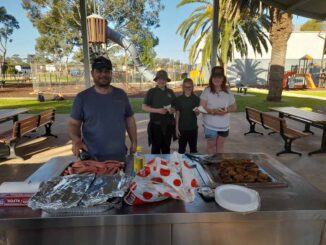At a meeting last month in Cobar the Murdi Paaki Regional Assembly (MPRA) has called for eight far west local councils to be abolished, and the establishment of a model that better reflects the future demographic.
The comments came as the group discussed the Far West Initiative and the Government’s Fit for the Future package.
MPRA Chairman, Sam Jeffries said MPRA believes not enough change will happen in the local government reform and they are calling for a more innovative model to take the region into the future.
“The Far West Initiative, announced along with the Government’s Fit for the Future package, aims to deliver a new governance and service delivery model in eight western division councils.
“Twenty years ago there were 65,000 people living in the region and 11.5 per cent were Indigenous.
“Now there are 45,000 people and 24.4 per cent are Indigenous,” Mr Jeffries said.
“The general population is decreasing and the Aboriginal population is increasing, and when you look around at all of the councils, they hardly have any Aboriginal representation on them,” he said.
Mr Jeffries said the Independent Review Panel’s report highlighted this and, to some degree, has criticised local governments for the lack of engagement with Aboriginal people.
He said the MPRA is concerned that the modelling being discussed will not have the capacity to incorporate adequate Aboriginal representation nor the ability to deliver rationalised budgets, programs and services needed into the future.
“The MPRA wants to see councils replaced by a body that works across all three tiers of government but is delivered from a local government perspective and one that will give all residents, in particular Aboriginal people, a voice.
“Local Government can be innovative if it wants to be.
“This is the time and opportunity to do it.
“It is our view that the members of the Advisory Committee, established to provide advice to the NSW Government, have to have the ability to separate themselves from the Local Government process and look at reform objectively, and provide advice that enables reform to be implemented that will service and support the generations of people coming through.
“Aboriginal people will play an increasingly important role in the region and we need to lay the proper foundations now to secure something that will stand the test of time.
“We need the confidence that in 20, 30, or even 50 years time, the Local Government structural arrangements in place will continue to deliver local government services, which in most communities will be to a predominately Aboriginal population,” Mr Jeffries said.

